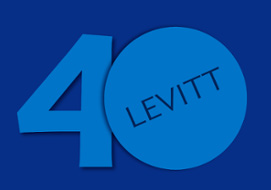
On election day, the Levitt Center hosted a public philosophy discussion about reinvigorating democracy. Some students, Levitt Center employees, professors and President Stephen Tepper attended the discussion, which included a catered lunch from Lafa. Attendees discussed the role of faith in democracy, everyday democratic practices and different ways of expressing democracy.
The conversation was framed around Virginia Moscetti’s essay, “Ballot Prayers: Exploring the Implications of a Democratic Faith,” which explores the role of a quasi-religious faith in voting. After all attendees introduced themselves, the discussion began with reflecting on the essay and the idea of faith’s role in democracy.

Levitt Center Faculty Director Frank Anechiarico questioned whether or not it’s necessary to bring religion into the public sector to make voting, in a sense, sacred. Then, Levitt Center Communications and Media Assistant Simon Stanco brought up crises, such as the Jan. 6 insurrection, and how they impact democracy.
Going off the point about crises in democracy, questions circulated around if democracy has declined or if it is “dead” today. Government Professor Annabelle Hutchinson answered these claims by pointing out that the United States wasn’t really a full democracy before 1965, and it’s only been recently that democracy has been approaching what it is ideally meant to look like. Other discussion participants agreed, and talked about how democracy allows several more freedoms now, such as the ability for women to vote, and that although democracy today is not fully ideal, its current state is better than what it has been in the past.
A student spoke about how for Gen-Z, there’s a fine line between belief and practice. She said that for people her age, there seems to only be a sense of legitimacy when there’s a tangible passion associated with a belief. Another student added that the lack of urgency that young people see from politicians in regards to issues they care about might lead to a lack of belief, as they lack examples of urgent action from politicians.
Going back to Moscetti’s essay, Stanco introduced the question of whether we should incorporate democratic values into daily practice. He wondered if democracy should be something that we practice in regular spaces, such as the classroom or the workplace. Attendees debated this question by discussing the importance of getting involved in local politics, as the more that people get involved, the more that democratic practices become demystified.
A faculty member discussed how he attempts to train his students to engage in democratic practice within the classroom. He shared that something he has realized in his attempt to let students lead discussions is that students appear to be scared to disagree with each other. Some attendees wondered if this hesitancy towards disagreeing with peers stems from social media, as it seems to be easier to disagree with someone over a screen, but more difficult in-person.
The discussion wrapped up with an exploration of how democracy can be expressed in an everyday context. Some participants suggested getting involved in different groups, working with people who are different from who they normally interact with everyday and forming new communities. Some also suggested different ways that Hamilton could specifically work on creating these stronger communities, and mentioned the “What If” initiative as a way to voice these ideas.
The Levitt Center will host more public philosophy discussions throughout the semester, which will be aimed at allowing the Hamilton community to express and discuss certain viewpoints in a shared environment. The Levitt Center also offers other types of community-wide events each week, which can be found on the Hamilton College website.

















